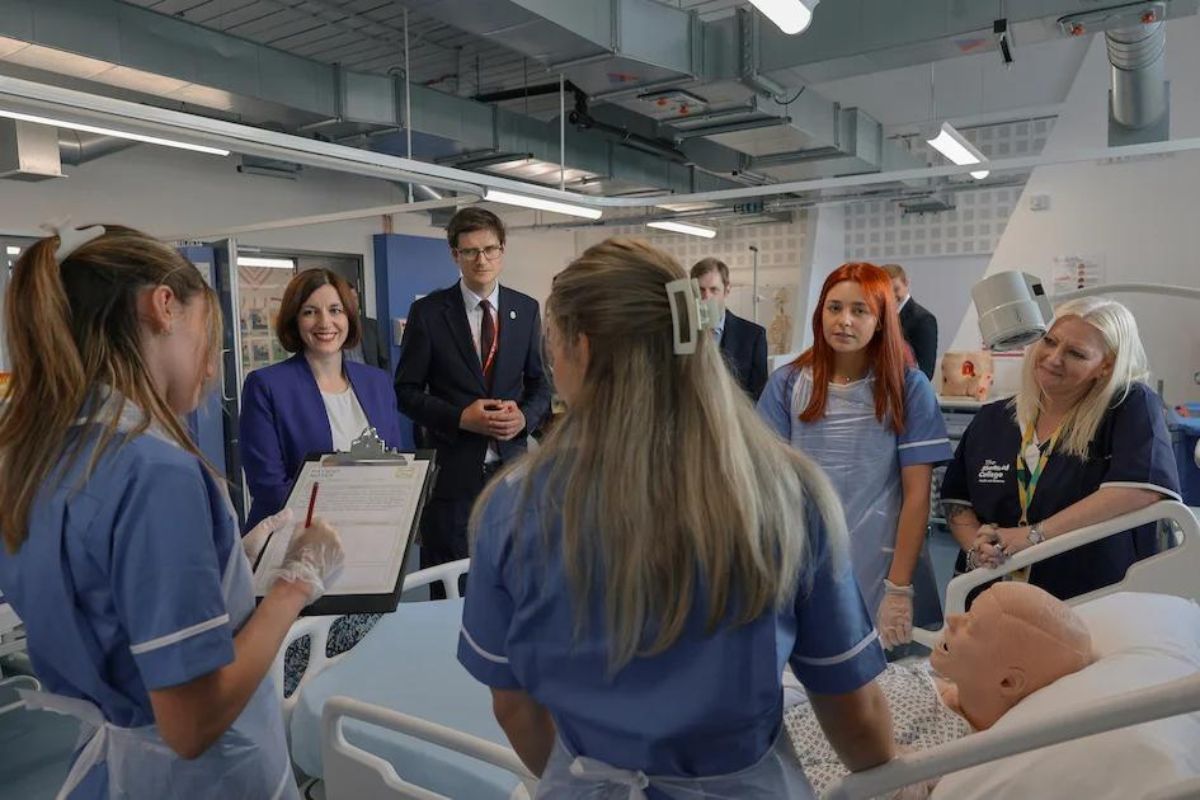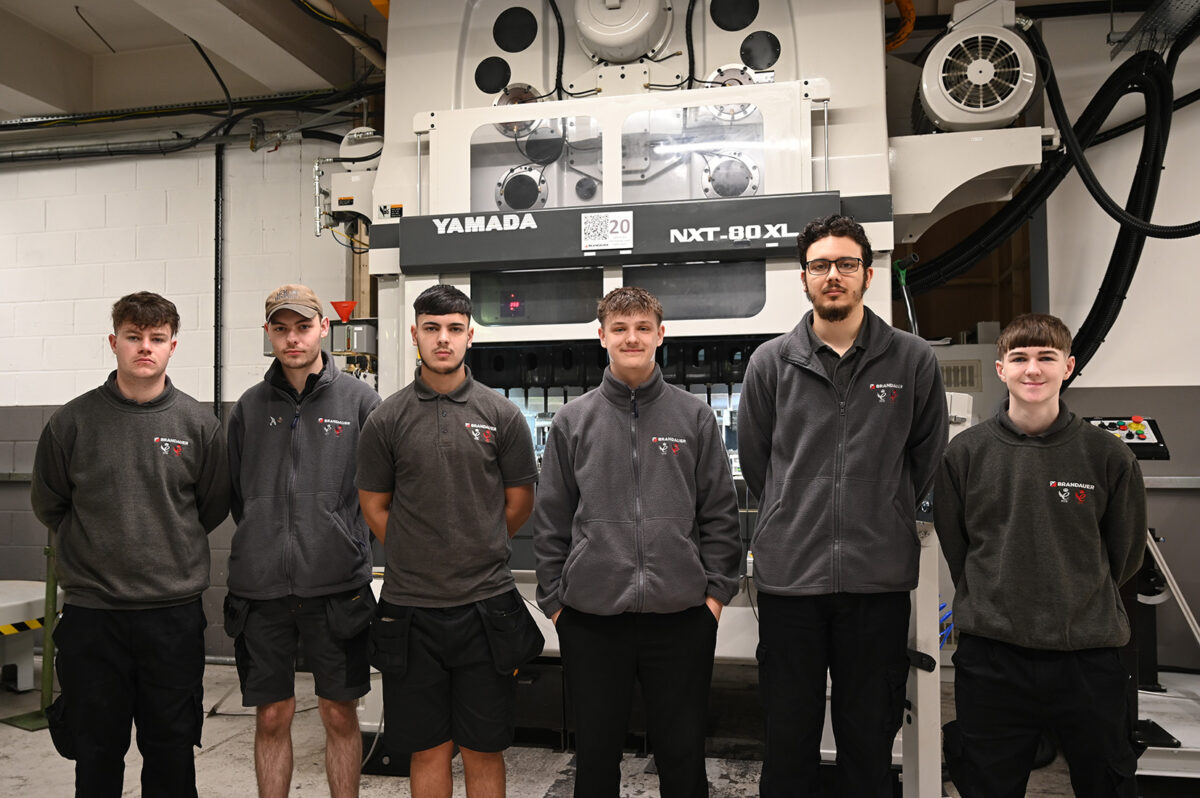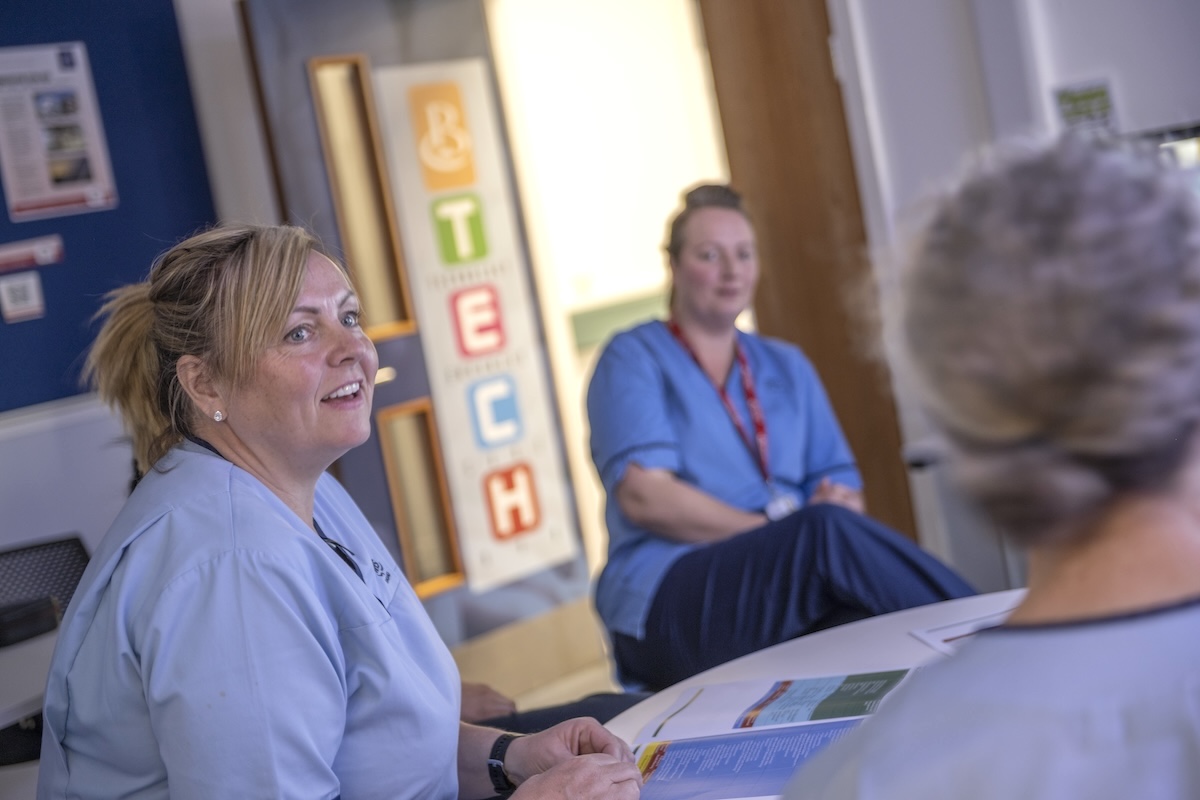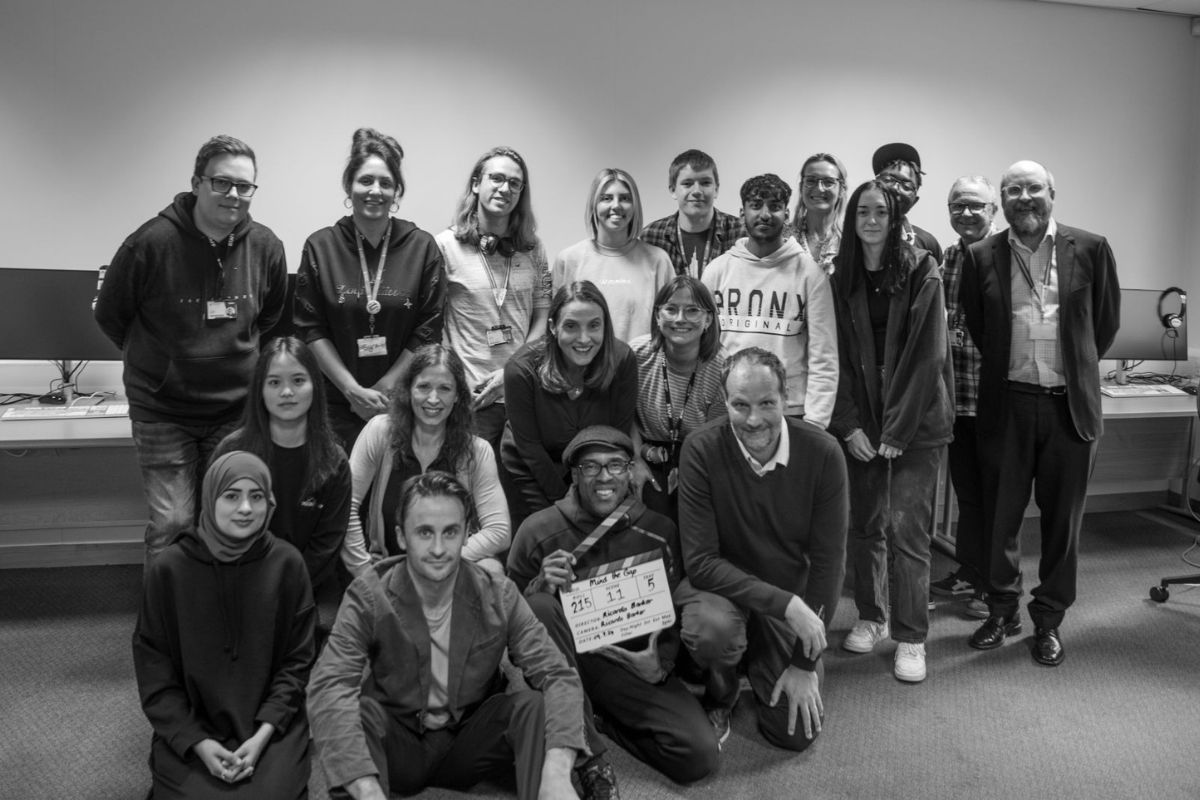New Secretary of State for Education visits The Sheffield College in national first

The Sheffield College(@sheffcol) has hosted a visit from the newly appointed Secretary of State for Education.
Bridget Phillipson MP, who is also the Minister for Women and Equalities, met students, teaching staff and college leaders at City Campus, Granville Road.
It is the first time that the Secretary of State has visited a further education college after being appointed to her new role following the change of government this month.
She was joined by Louise Haigh, Sheffield Heeley MP and Secretary of State for Transport; Councillor Tom Hunt, Sheffield City Council Leader; and Fliss Miller, Director of Skills at South Yorkshire Mayoral Combined Authority.
Susan Acland-Hood, Permanent Secretary, and Julia Kinniburgh, Director General, Skills, both from the Department for Education, also attended.
Angela Foulkes CBE, Chief Executive and Principal, The Sheffield College, said:
“We make a major contribution to the city supporting local communities, creating a talent pipeline for employers and enabling our students to go further in their careers.
“It was great to welcome the new Secretary of State for Education and highlight why further education colleges need to be at the forefront of the new government’s ambitions for the economy and skills.”
During the campus tour, health and social care students showcased how they are using the latest technology to develop their knowledge and skills.
A six-bed hospital ward has been created in a classroom and fitted with robotic mannequins as well as medical and mobility equipment.
The £360,000 facility, which opened earlier this academic year, is training the next generation of healthcare professionals.
The mannequins can be programmed to simulate real life patient scenarios so that students can practise their skills safely. During the demonstration, students examined and assessed a mannequin patient that had several wounds and bruises.
The ward set up reflects NHS hospital bay dimensions. It includes a bathroom and mobility aids such as a hoist as well as breathing, blood pressure and obstetric equipment. The facility has been jointly funded by the Department for Education’s T Level Capital Fund and the college.
Student Savanna Newsome, 16, who is studying a T Level in Health and Science, said:
“I found it really interesting to meet everyone on the visit. It is nice to see people being interested in what we are learning and how this is helping us with our future.
“The high tech facilities that we use are really good as they help us to understand what it is like to look after a patient and how to communicate with them.
“The main reason that I picked this course is because it gives me so many opportunities for the future. My career ambition is to become a paediatric nurse.”
Another group of T Level students, studying building technologies, business and IT, also took part in a roundtable discussion during the visit on 12th July 2024.
The students highlighted why they have chosen to study these new technical qualifications, and the benefits of the links to employers.
Guests also saw painting and decorating apprentices at work demonstrating the skills that they are learning to boost their employability skills and job prospects.
The college, which is Ofsted graded ‘good’, offers technical, academic and professional qualifications.
Educating and training more than 13,000 young people and adults a year, the college is also one of largest apprenticeship providers in the region.
Its Apprenticeships+ service supports employers to get the skills they need and enables students to become highly employable.
Apprenticeships+ provides a range of information and advice on apprenticeship programmes and funding.
Approximately, 1,890 apprentices trained with the college during the last academic year and around 890 employers are involved in apprenticeship programmes.
T Levels are new two-year technical qualifications that have been designed to provide students with high quality technical training.
T Levels have been developed with employers and businesses to meet the needs of industry so that they prepare students for work, further training, or study.
Students completing T Levels complete 80% of their learning at college and 20% on a 45-day industry placement.
Photo credit: Joe Horner.











Social Networks